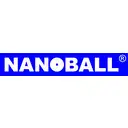Wermelskirchen
North Rhine-Westphalia
42929
Germany
About us
The company was founded in 2011 by Thomas Schulte and Dag Jünemann. In cooperation with well-known research institutes, special spheres made of rare earth magnet, single crystal, high-alloy stainless steels and plastic materials are developed and ready-made materials for hollow spheres are brought to series maturity. The latest developments of Nanoball GmbH are miniature spheres made of magnetic materials. Precision miniature spheres from Nanoball can be found today in applications such as high-speed valves, medical devices, high-frequency technology or semiconductor manufacturing.
Nanoball currently has 7 employees and the export share of nanoball products is around 60 percent.
A special focus of the Portfilio is the processing of miniature balls:
Nanoball GmbH, Wermelskirchen, offers, in addition to the production of miniature spheres in the range between 100 and 2,000 μm, the further processing of these spheres as an additional service. Possible machining methods include drilling, threading, the milling of surfaces or other geometries. Nanoball is, according to its own assessment, the only provider of such additional services worldwide.
Such further processed miniature spheres are required, inter alia, in high-tech companies, research institutions, but also in the watch and semiconductor industries, in particular in order to comply with defined distances in wafer production.
At Nanoball, the record holds a 80 μm diameter ball with a through hole of 50 μm diameter. This ball was designed for a manufacturer of high-precision measuring instruments and was installed in a probe. The currently smallest manufacturable bore diameter is 10 microns, which, however, has so far not been in demand in practice.
Another customer with extreme precision requirements is the US Space Agency. For NASA, bullets were drilled through to pass glass fibers.
In a current project, Nanoball produces pierced balls for the synchrotron ELETTRA in Trieste. This facility has ultra-high UV and X-ray sources. Here, balls of 300, 500, 800 and 1000 μm diameter are used. These balls are provided with holes between 100 and 300 microns. Tolerance requirements for the holes in the smallest balls: +10 μm.
This extreme precision is made possible by various processing methods. Up to a diameter of 40 μm, the balls can still be produced mechanically, ie with the aid of drills that are thinner than a human hair.
Smaller diameters are achieved either by conventional die sinking or by electrochemical erosion, which in principle corresponds to 5-axis milling. The erosion methods also offer the advantage of producing holes, which is an absolute must in many applications. With the aid of EDM machining, almost any geometry, not just round holes, can be displayed.
Balls made of stainless steel and titanium are mainly drilled with these methods, but the machining of ceramic materials or non-ferrous metals or magnetic materials is possible.
Nanoball is not only able to produce almost arbitrarily thin holes in extremely small components. Time and again, the company is required to attach surfaces to balls or mill certain geometries. Through years of experience in precision machining, Nanoball is able to solve these tasks as well.
Sorry, no records were found. Please adjust your search criteria and try again.
Sorry, unable to load the Maps API.
